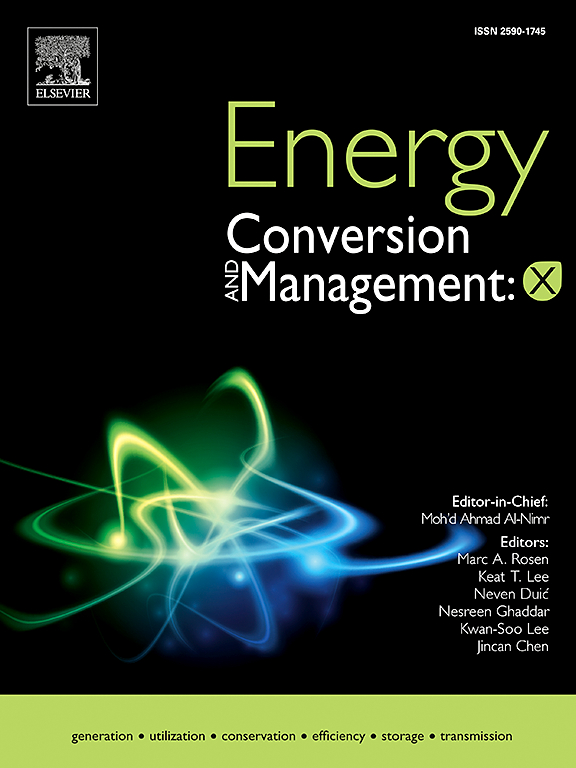A blockchain-based P2P regional energy trading and credit mechanism
IF 7.6
Q1 ENERGY & FUELS
引用次数: 0
Abstract
As the popularity of distributed photovoltaic (PV) power generation increases, the consumption pressure on the conventional grid also increases. At the same time, it also increases the scheduling complexity and the lack of fairness in peer-to-peer (P2P) energy trading. This study proposes a novel Regional Electricity Trading Framework (RETF) based on consortium blockchain technology to cope with the above problems. The framework uses the organizational structure of consortium blockchain to enable secure and transparent intra- and extra-regional trading within a microgrid architecture, thereby increasing order turnover. Its core innovation is the direct integration of credit scores (calculated from users’ historical market behavior) into the dynamic pricing mechanism. The combination of a user’s credit score and acceptable price determines the prioritization of trades, aiming to inject fairness into the system and enhance trading credibility. The mechanism combines with self-regulating price equilibrium coefficients to effectively promote fair price gaming and stability. Experimental results show that RETF increases trading volume and reduces trading uncertainty by increasing user default costs while enhancing profitability. RETF provides a viable solution for decentralized energy markets.
基于区块链的P2P区域能源交易信用机制
随着分布式光伏发电的普及,传统电网的用电压力也在增加。同时,也增加了P2P能源交易的调度复杂度和公平性。针对上述问题,本文提出了一种基于财团区块链技术的区域电力交易框架。该框架使用财团区块链的组织结构来实现微电网架构内安全和透明的区域内和区域外交易,从而增加订单周转率。其核心创新是将信用评分(根据用户历史市场行为计算)直接整合到动态定价机制中。用户的信用评分与可接受价格相结合,决定交易的优先级,旨在为系统注入公平性,增强交易可信度。该机制与价格均衡系数的自我调节相结合,有效地促进了价格的公平博弈和稳定。实验结果表明,RETF在提高盈利能力的同时,通过增加用户违约成本,增加了交易量,降低了交易不确定性。RETF为分散的能源市场提供了一个可行的解决方案。
本文章由计算机程序翻译,如有差异,请以英文原文为准。
求助全文
约1分钟内获得全文
求助全文
来源期刊

Energy Conversion and Management-X
Multiple-
CiteScore
8.80
自引率
3.20%
发文量
180
审稿时长
58 days
期刊介绍:
Energy Conversion and Management: X is the open access extension of the reputable journal Energy Conversion and Management, serving as a platform for interdisciplinary research on a wide array of critical energy subjects. The journal is dedicated to publishing original contributions and in-depth technical review articles that present groundbreaking research on topics spanning energy generation, utilization, conversion, storage, transmission, conservation, management, and sustainability.
The scope of Energy Conversion and Management: X encompasses various forms of energy, including mechanical, thermal, nuclear, chemical, electromagnetic, magnetic, and electric energy. It addresses all known energy resources, highlighting both conventional sources like fossil fuels and nuclear power, as well as renewable resources such as solar, biomass, hydro, wind, geothermal, and ocean energy.
 求助内容:
求助内容: 应助结果提醒方式:
应助结果提醒方式:


